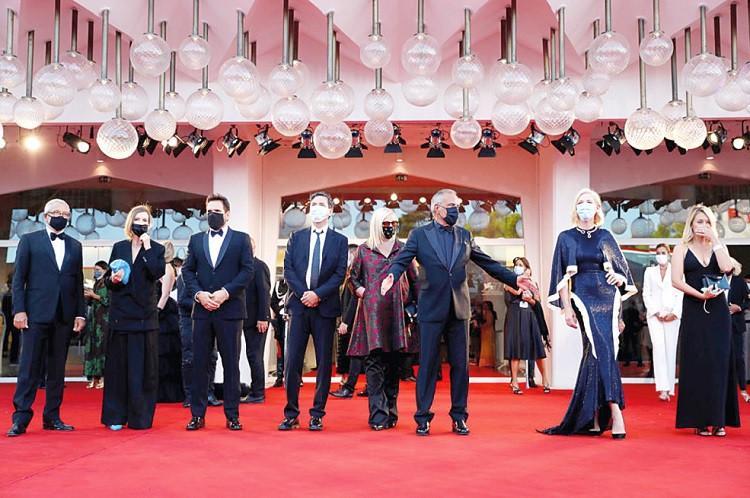
Culture has been one of the main victims of the pandemic. People-to-people contacts, big events, concerts have all been cancelled or postponed. The English language needed to come up with a new expression such as “in-person” event, while until today it was obvious that the same word “event” meant something that could only be enjoyed together.
Both Italy and Turkey have been seriously affected by the pandemic, but we share a Mediterranean spirit of entrepreneurship and making it even in the worst crisis over the past decades. We managed to find the tools to restart the economy and fulfill the hopes for a better future to flourish while at the same time forging new rules imposed by the situation.
A good example of this positive spirit in front of adversity is the 77th Film Festival in Venice Biennale organized this year. The success of the festival is definitely a one-of-its-kind example of how much culture is needed in these troubled times.
Despite many voices calling for the cancellation of the event, the Venice Biennale didn’t give up and it was right in doing so. It has been one of the most successful editions so far where actors and influencers alike gathered together to celebrate the uniqueness and resilience of cinema, the seventh art.
Dating back to 1932, one of the oldest in the world, the Venice Film Festival epitomized this year the longstanding tradition of Italian cinema while at the same time trying to project itself in the future, giving a message of hope on what we can also do during the new pandemic “normal.” It was, of course, impossible to pretend that the attitude could be “business as usual.”
The program was adapted according to the constraints imposed by the ongoing pandemic. It was, for example, decided that most of the side-events (the real core of Venice’s charm in the past years) would be either scheduled in singular timeframes or moved to other cities. It didn’t affect the resonance of the event, which attracted attention and positive feedback compared to the previous years.
Among the highlights of the festival was the “SIAE Award” given to Turkish-Italian Director Ferzan Özpetek in acknowledgment of a career spanning throughout the last 30 years. Through social media, the public in Italy and Turkey has interacted and made the ceremony a resounding and encouraging success.
The festival has also used its popularity and vast outreach to celebrate the heroes of our time, using the medium of the red carpet for heroism shown by people like Ms. Alessia Bonari, a nurse who reached worldwide fame last March when she posted a picture in front of a mirror with very visible scars from her mask. At the peak of the pandemic, after exhausting shifts in the COVID-19 hospital she was working in, she became the symbol of the fight against the virus and was eventually named “character of the year.” Italy, like Turkey, is a country that lives on culture and tourism, according to the latest available statistics for 2018, which showed Italy’s cultural sector was worth 255.5 billion euros, including the revenues from tourism.
That accounts for almost 15 percent of Italy’s 2018 GDP. Nearly 1.5 million people were employed in this sector, around 6 percent of all employed people in Italy. These numbers show a reality that was growing stronger year after year (44 percent more tourists between 2013 and 2018) in Italy.
Of course, 2020 is going to be a very difficult year. In the first part of the year, the number of tourists traveling around Italy decreased sharply.
However, there has been a partial rebound in August thanks to a higher presence of Italian tourists and the return of some Europeans. The attractiveness of Italian beauty and way of life is still vivid. Both Italy and Turkey are rich in World Heritage Sites, traditions and are among the strongest producers of cultural content in the world. We have a common goal of finding new ways of making the most of this richness embedded in our shared Mediterranean identity.
Of course, we cannot expect to go back to the past. We have to be creative and innovative. We have to experiment: In that sense, the Venice Festival is a perfect example of a successful event whose format can be replicated. We are demonstrating that the limitations imposed by the pandemic are not preventing us from celebrating culture through alluring events and valorizing our cities and their outstanding cultural production.
Finally, we need to make sure that a more limited number of participants to events does not lead to “elite events.” That is why more and more influencers and social promotion strategies should be considered to make culture available for the many and not for the few.
In this spirit, the Italian Embassy, together with the Consulate General in Istanbul, the Consulate in İzmir and the Italian Cultural Institute, will continue to offer events and content, which I hope will be in the utmost interest of the Turkish public.